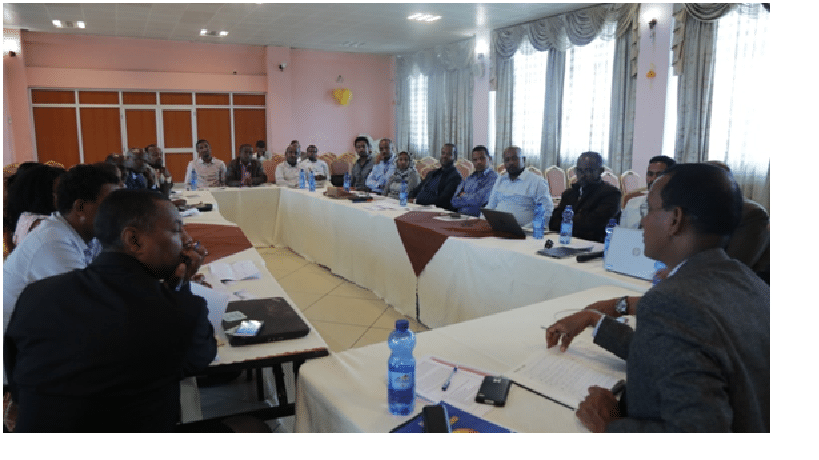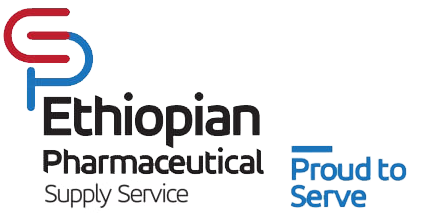Stakeholders discuss draft proclamation

Ethiopian Pharmaceuticals Supply Agency discussed the draft proclamation prepared to amend the 2007 establishment proclamation with various stakeholders in the value chain in a meeting held at Sarem hotel on March 1, 2019.
The meeting, part of a series of meetings with stakeholders, aimed at brainstorming and collecting inputs on the draft proclamation that featured branch managers, local pharmaceuticals manufacturers and suppliers, representatives of regional health bureaus, etc.
In his speech, Deputy Director General of EPSA and Coordinator of the draft proclamation review committee, Mehari Tekeste noted that making the Agency semi-autonomous is the major reason behind the move to revise the proclamation.
The Deputy Director General raised the absence of direct procurement system in the case of health emergencies as a problem addressed in the draft proclamation. He also pointed out the inclusion of framework agreements and Pooled Procurement Mechanism (PPM) as newly introduced procedures included in the draft proclamation.
Another new agenda included in the draft proclamation, MehariTekeste noted, is pharmaceuticals disposal. The draft proclamation indicates standard practices for pharmaceuticals disposal.
Moves towards realizing a partially self-administered structureare also part of the amendment, along with building centres of excellence and expanding its sources of revenue, explained the Deputy Director General.
Some of the inputs from the stakeholders, especially the pharmaceuticals manufacturers and suppliers associations, were sceptical of what they described as the Agency’s move towards monopolizing the sector at a time when the country is marching towards buffing up the private sector.
In his response to the remark, the Deputy Director General underscored that the draft proclamation strengthens partnership with the private sector as it guides the Agency into complementary areas not addressed by the private sector.
The associations argued for the inclusion of a clause in the draft proclamation that allows for the privatization of the incinerators being installed by the Agency across the country.
MehariTekeste explained that desperate condition of pharmaceuticals disposal has pushed the government into providing a quick response and that the visible capacity problem in the private sector accentuated governmental intervention. He then pointed out that better conditions in the future could provide the Agency with a chance to transfer them to private ownership.
The associations also stood opposed to the article which states that public health facilities receive pharmaceuticals only from the Agency. They argued that the article effectively blocks their right to participate in the market lawfully.
The associations also condoned their omission from board membership claiming that it marginalizes and leaves them voiceless. The Deputy Director General explained in response that the draft has left some room for experienced individuals in the sector to be included in the board along with public officials.
They also raised instances of overlapping jurisdictions with other institutions citing the proposed establishment of a quality control laboratory under the Agency with FMHACA. However, member of the committee, YemanebirhanTadesse explained that the laboratory is just a tool of internal control which has no overlapping jurisdiction with other institutions.
The participants praised the work surrounding excellence centres and called for it to be strengthened.
The draft proclamation is expected to be reviewed by the management team of the Ministry of Health and then passed on to the House of People’s Representatives for ratification.
